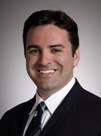Greening the Supply Chain: How to Avoid Greenwashing When Buying “Green”
Session Description
In a 2007 study of products in stores by Terra Choice, all but one of the 1,018 products examined had environmental claims that were noticeably false or risked misleading intended audiences. How do you know when a claim is true, or false? How do you market products to avoid misleading claims? When you walk through grocery stores, you may see claims such as “environmentally friendly,” “natural,” or “non-toxic” on products. These are some of the common misleading claims that make it challenging for consumers and purchasers of health care products. Ecolabels may help but there are over 350 of them according to the Ecolabel Index, and some of them are industry-created eco-labels so they themselves are a form of greenwashing. Proposed updates to the Green Guides by the U.S. Federal Trade Commission have not been finalized to help clarify terms, but there are ways to overcome these barriers. Come hear from two experts in the field how not only to buy “green” but also how to market products as “green” to avoid being duped.
Learning Objectives
- Identify examples of greenwashing and learn strategies to prevent it
- Know at least five reputable third party labels and the sources for those environmentally preferable products
- Understand the complexities behind using green marketing claims for products
- Learn the latest regulatory activities to ensure the proper use of green marketing claims
Presenters
 William F. Tarantino, Partner, Morrison & Foerster, San Francisco
William F. Tarantino, Partner, Morrison & Foerster, San Francisco
William (Bill) Tarantino is a partner in Morrison & Foerster's San Francisco office. Drawing on his expertise in environmental health, Mr. Tarantino's practice focuses on environmental and consumer protection law, with an emphasis on hazardous substances, toxic torts, and consumer product safety. Mr. Tarantino also has significant experience in consumer class action and false advertising litigation, particularly with respect to claims of health or environmental benefits.In 2009, he was selected to serve as Vice Chair of the Committee on Private Advertising Litigation of the American Bar Association's Antitrust section.
Prior to joining Morrison & Foerster, Mr. Tarantino clerked at the United States Environmental Protection Agency, Region IX Office of Regional Counsel, where he assisted in the prosecution and resolution of cases brought by the U.S. Department of Justice for violation of hazardous waste laws including CERCLA (Superfund) and the Resource Conservation and Recovery Act (RCRA).Mr. Tarantino received his J.D. from the Georgetown University Law Center with honors, and completed the Law and Public Health program sponsored by Georgetown University and the Johns Hopkins Bloomberg School of Public Health. Through this program, he earned a Masters in Public Health as well as specialty certification in environmental health risk assessment from the Johns Hopkins Risk Sciences and Public Policy Institute.
 Alicia Culver, Executive Director, Responsible Purchasing Network
Alicia Culver, Executive Director, Responsible Purchasing Network
Alicia Culver is the Executive Director of the Responsible Purchasing Network, an international network dedicated to advancing sustainable procurement policies and practices among government agencies and public institutions. RPN uses “the power of the purse” to promote toxics reduction, manufacturer responsibility, and green collar job creation, and to help government agencies, businesses and institutions meet their climate protection, zero waste and other sustainability goals.
Alicia has over two decades of experience working in the sustainable procurement field. She got her start in 1994 evaluating the federal government’s environmentally preferable purchasing efforts as Coordinator of the Government Purchasing Project based in Washington, DC. She later served as deputy director of the New Jersey Office of Sustainability and, in 2004, founded the Green Purchasing Institute.
Alicia has worked directly with the procurement and environmental program staff of dozens of cities, counties, states and federal agencies to demand a wide-range of cutting-edge “green” products, including asthma-safe cleaning products, low-mercury lighting equipment, locally grown produce and truly compostable food service ware. Alicia is currently serving as an advisor to the UN Environment Program and the World Bank, identifying the best practices for the procurement of energy-efficient products around the world. She also chairs San Francisco’s Sweatfree Procurement Advisory Group.
Pricing
Member: $0 Non-member: $29
-
Register
- Standard Fee - $29
- Practice Greenhealth Member - Free!
